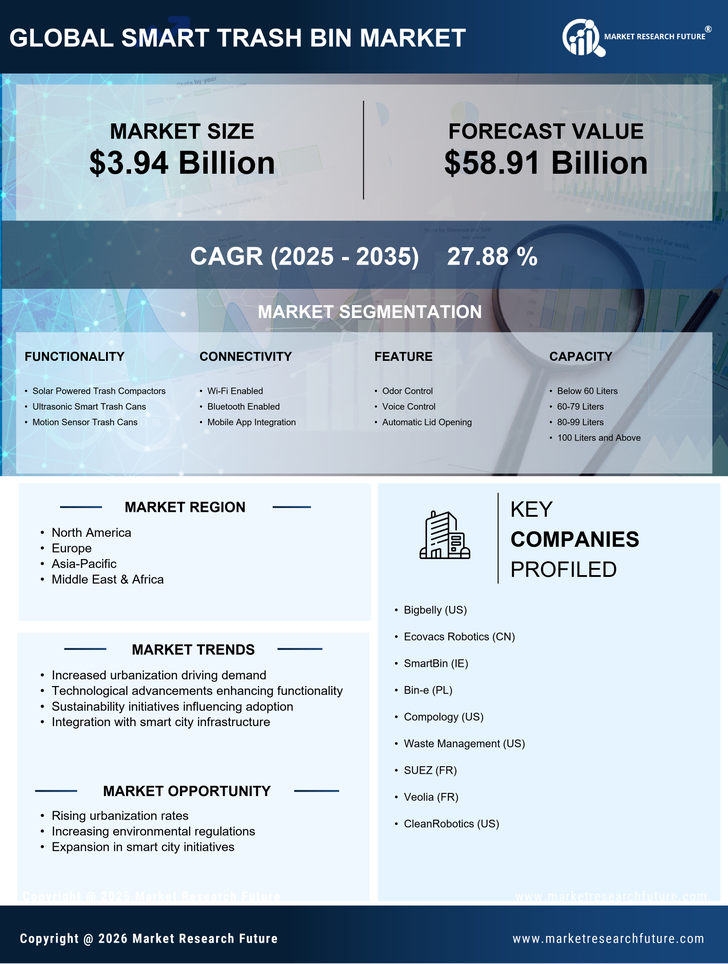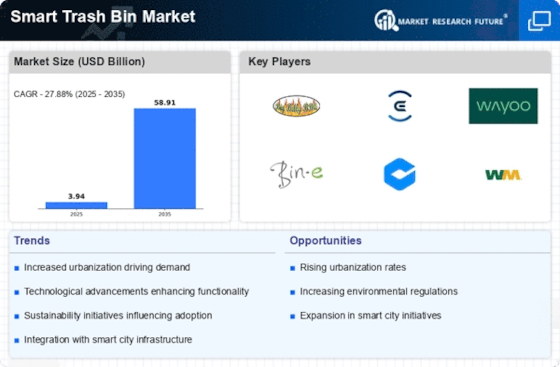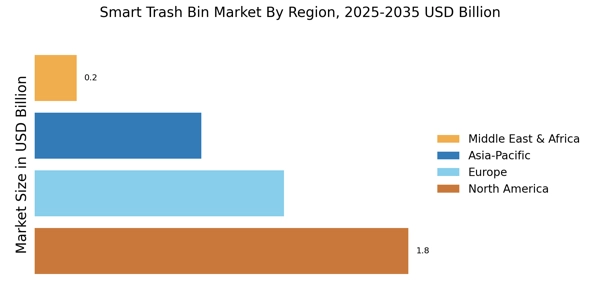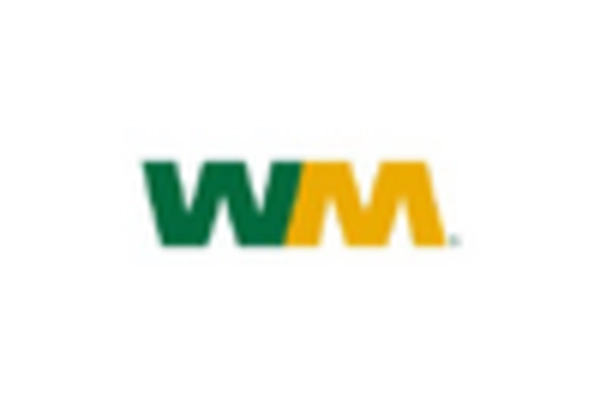North America : Innovation and Sustainability Leader
North America is the largest market for smart trash bins, holding approximately 45% of the global market share. North America leads the Smart Trash Bin Market, driven by innovation, sustainability initiatives, and strong adoption of smart trash bins and smart recycling bins in urban infrastructure. Cities are investing in smart technologies to enhance waste collection efficiency and reduce operational costs, further fueling demand for smart trash bins. The United States leads the market, with significant contributions from Canada. Key players like Bigbelly, Waste Management, and CleanRobotics are at the forefront, offering advanced solutions that integrate IoT technology. The competitive landscape is characterized by continuous innovation and partnerships with municipalities to implement smart waste management systems, ensuring a cleaner environment and improved public services.
Europe : Sustainable Waste Management Focus
Europe is the second-largest market for smart trash bins, accounting for around 30% of the global market share. Europe focuses heavily on sustainable smart waste bin adoption due to strict environmental regulations and recycling mandates. Countries are increasingly adopting smart waste management solutions to meet recycling targets and reduce landfill waste, creating a favorable environment for market expansion. Leading countries include Germany, France, and the UK, where companies like SUEZ and Veolia are prominent players. The competitive landscape is marked by collaborations between public and private sectors to enhance waste collection efficiency. The European market is characterized by a focus on innovation, with smart bins equipped with sensors and data analytics to optimize waste management processes.
Asia-Pacific : Emerging Market with High Potential
Asia-Pacific is witnessing rapid growth in the smart trash bin market, holding approximately 20% of the global market share. Asia-Pacific represents a high-growth region, driven by urbanization, smart city projects, and increasing adoption of smart trash bins, including growing interest in trash bin India, india trash bin, and indian trash bin solutions. Countries are investing in smart waste management technologies to address environmental challenges and improve urban living conditions. China and Japan are the leading markets, with companies like Ecovacs Robotics and SmartBin making significant strides. The competitive landscape is evolving, with local startups emerging alongside established players. The region's focus on technological advancements and sustainability is expected to drive further adoption of smart trash bins, enhancing waste management efficiency and reducing environmental impact.
Middle East and Africa : Growing Awareness and Adoption
The Middle East and Africa region is gradually adopting smart trash bin technologies, accounting for about 5% of the global market share. The region is gradually adopting smart trash bin technologies as awareness of smart waste management grows. Countries are beginning to recognize the benefits of smart waste management solutions, leading to a gradual increase in market demand. Leading countries include South Africa and the UAE, where local governments are exploring smart city initiatives. The competitive landscape is still developing, with a mix of local and international players entering the market. As awareness of smart waste management solutions grows, the region is expected to see increased investments and partnerships to enhance waste collection efficiency and sustainability.

















